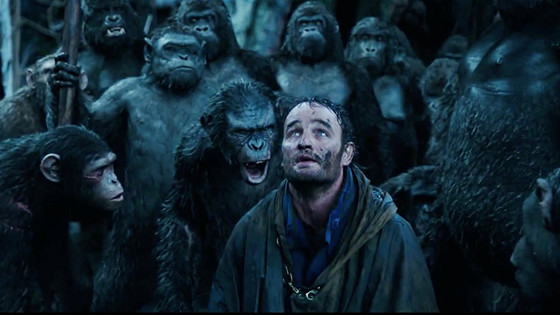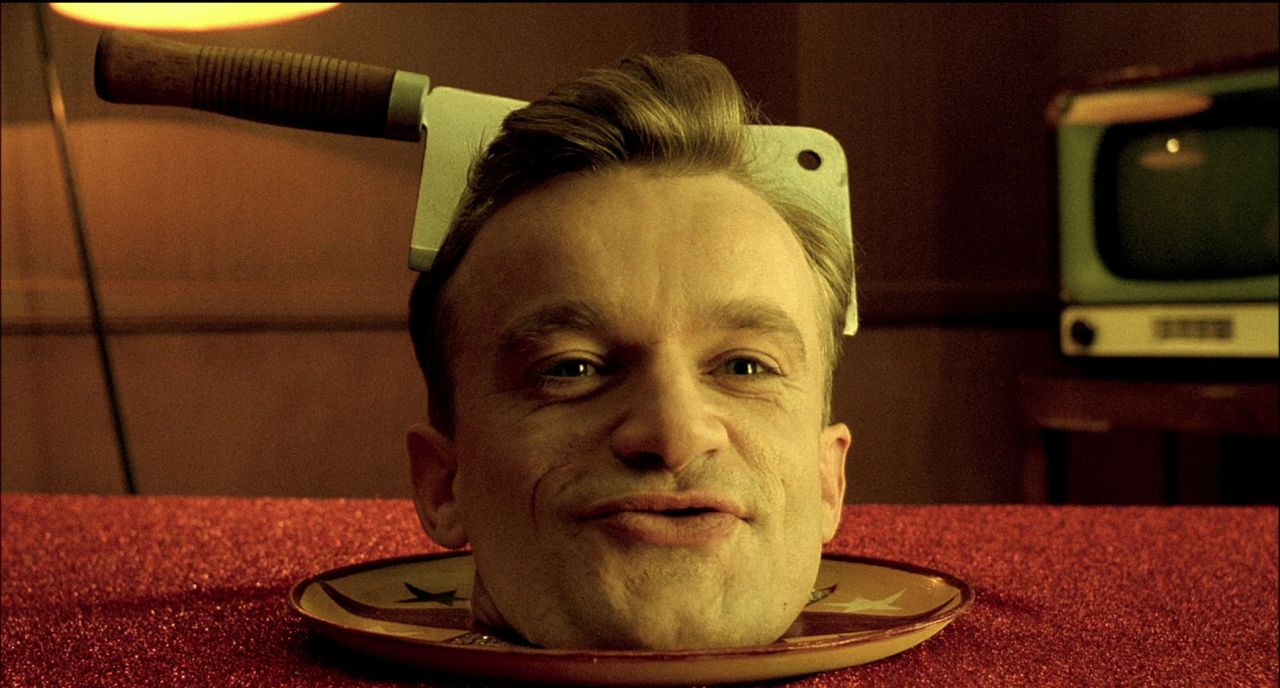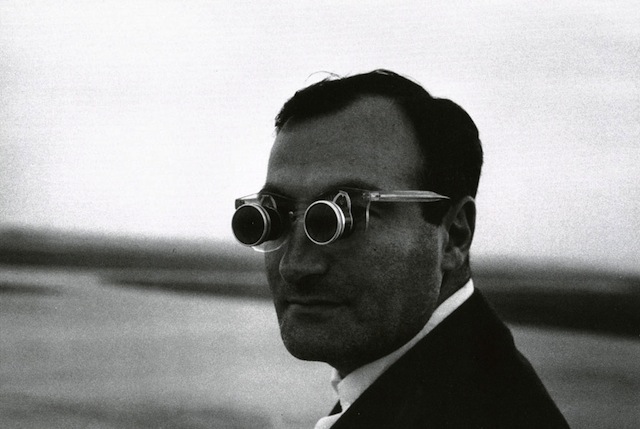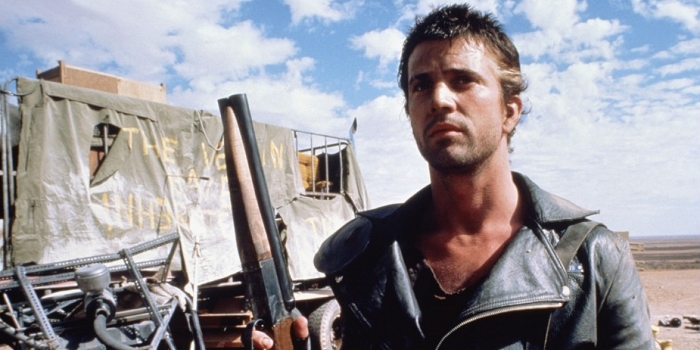5. Dawn of the Planet of the Apes (Matt Reeves, 2014)
The second instalment of the Planet of the Apes reboot, Dawn of the Planet of the Apes completely blows it predecessor out of the water and is probably the smartest and best summer blockbuster to come out this year. On top of that, it’s also a great post-apocalyptic tale in which mankind is struggling to survive after having been nearly wiped out completely by a virus.
The story takes place ten years after the events of Rise of the Planet of the Apes and a simian flu has wiped out most or the world’s population and left human civilisation on the brink of extinction.
Meanwhile Caesar and his fellow apes have build their own peaceful society in the woods outside of San Francisco. But when humans enter their territory in search for a renewed energy source, misunderstandings and resentment of each other on both sides start the rumblings of war between man and ape.
Dawn of the Planet of the Apes is that rare summer blockbuster that is all about story and character development. The CGI has also improved greatly over the last three years and the motion capture work here is simply stunning, allowing the ape characters to really be fully developed players in this dark brooding saga.
The movie is heavy on plot and not so heavy on action but when there’s action on display, it is a sight to behold. The best Planet of the Apes movie since the original with Charlton Heston back in 1968, Dawn of the Planet of the Apes is simply fantastic. And whilst the original Heston film is an absolute classic, this is great new entry into the series and a better fit with the post-apocalyptic films listed here.
4. Delicatessen (Marc Caro &Jean-Pierre Jeunet, 1991)
The feature film debut by Jean-Pierre Jeunet and Marc Caro, Delicatessen is a post-apocalyptic comedy-fantasy with striking visuals and a clear homage to the films of Terry Gilliam. The only comedy on this list, Delicatessen deserves its place here as it gives a unique spin on the genre and is simply a great little film, which introduced us to the wonderful visual world of Jean-Pierre Jeunet.
Taking place in an apartment complex after some sort of apocalyptic event which has left the world in short supply of food, the film follows the various odd-ball tenants who live there, focusing primarily on the landlord/butcher and the newly arrived Louison (Dominique Pinon), a former circus clown.
Louison manages to get a room in the building since the previous tenant has vanished into thin air. The reason for this is that the owner keeps placing ads for workers who he then proceeds to kill to provide his tenants with a steady supply of meat. Louison is meant to be the next victim but as he proves himself very handy, the butcher lets him live longer than anticipated. During this time,
Louison falls in love with the butcher’s daughter, who realises that his time might be limited and hence contacts the Troglodistes, a vegetarian group of underground rebels, to help her save her new found love.
A real visual treat, Delicatessen is stunningly shot by ace cinematographer Darius Khondji, who depicts the entire world in a golden haze. Bizarrely surreal and filled with pitch black humour as well as possessing a genuinely sweet love story at its centre, Delicatessen was a festival favourite as well as a substantial art-house success.
The film was nominated for ten Cesar Awards in France, winning four for Best Debut, Original Screenplay, Production Design and Editing as well as a slate of other awards at various international festivals and award ceremonies. Jean-Pierre Jeunet and Marc Caro would continue their partnership with The City of Lost Children and after that Jeunet would go on by himself to make Amelie, his most successful film to date.
3. The Road (John Hillcoat, 2009)
Based on the Pulitzer Prize-winning novel of the same name by Cormac McCarthy, The Road is a grim post-apocalyptic tale, starring Viggo Mortensen and Kodi Smit-McPhee.
Set in the United States after an unspecified catastrophe has decimated the population and wiped out most life on the planet, a man (Mortensen) and his son (Smit-McPhee) roam the countryside, trying to stay alive and hoping to find some sort of remaining civilisation. In a freezing world with constant grey skies, the two travel South as they figure it might be warmer there and are constantly on their guard for other survivors, many of whom have turned to cannibalism due to the dwindling food supplies.
The father has a pistol but only two bullets left and through flashbacks it is revealed that after the catastrophe first hit, his wife (Charlize Theron) was still alive and they were trying to survive in their old home after the birth of their son. But when an intruder had to be shot, the three bullets the father initially had saved to possibly commit suicide with were reduced to two and the mother left, claiming he had done so purposefully to avoid having to kill her.
Now the father and son navigate their way South by themselves. But travelling through a landscape filled with peril in which the only thing that matters is survival makes simply remaining “human” the greatest challenge of all.
One of the bleakest and grimmest post-apocalyptic film adaptations to ever hit the screen, The Road still manages to somehow convey as sense of hope, no matter how slight. Viggo Mortensen is fantastic as the man who will do anything to keep his son alive and Kodi Smit-McPhee strikes the perfect note as he portrays a kid who has never known a world other than the horrible one he finds himself in, yet always seems to be aware that things should be better than this.
The cinematography, costumes and art direction all create a convincingly bleak post-apocalyptic landscape which is perfectly complimented by the minimalist score by Nick Cave and Warren Ellis. Also look out for great small supporting parts by Robert Duvall and Guy Pearce. The film was nominated for the Golden Lion at the Venice Film Festival and received many other international nominations, primarily for Viggo Mortensen’s performance and Javier Aguirresarobe’s cinematography.
2. La Jetée (Chris Marker, 1962)
Chris Marker, a French writer, photographer, documentary film director, multimedia artist and film ist, only made one fictional narrative in his career in the form of La Jetée, a 28 minute long science fiction film, made up almost entirely of still frames. But with this one short film, he achieved more than other directors do in their entire career.
The story deals with a post-apocalyptic world, where the only hope for mankind’s survival has become time-travel. Experiments to achieve this are carried out in the catacombs of Paris, where people have taken refuge, but they are to no avail as the the test subjects either die or lose their mind in the process.
This is where our nameless protagonist comes in. He has a very strong memory of a particular event in his childhood, when he saw a woman on a pier at Paris airport, and this might be the key to successfully send him back in time.
La Jetée is an undeniable masterpiece, which works as a brilliant science fiction short as well as a serious philosophical contemplation. On top of that, it might also be one of the most romantic films ever made. The moody black and white photographs, fantastic sound design, beautiful voice-over and lofty themes create a hypnotic and singular experience.
If the story seems vaguely familiar, that might be because Terry Gilliam’s 12 Monkeys was based on this film. Needless to say, the two are incomparable and Gilliam never even approximated the brilliance of the original (and hence 12 Monkeys is not appearing on this list). A must for all lovers of science fiction, romance and high quality cinema, La Jetée is a monumental short film.
1. Mad Max 2: The Road Warrior (George Miller, 1981)
Was there any other movie that could have made the top spot on this list? If anything, it could have been the first Mad Max but ultimately I only wanted to select one film in the series and felt that the second Mad Max is quite possibly one of the most kick-ass science fiction films to have ever graced the screen. And whilst the first Mad Max was a considerable hit in its own right, this sequel upped the ante, virtually eclipsed the original and became so popular it has almost become synonymous with the post-apocalyptic genre as a whole.
The story of course is set in a desert post-apocalyptic landscape in which gasoline has become one of the most prized commodities. The world is inhabited by a bunch of crazed barbarians whose only purpose seems to be cruising around in their modified vehicles in search of more fuel to be able to keep doing just that.
Max (Mel Gibson) has been surviving as a loner ever since he lost his family in the first film but becomes the reluctant hero of the story when he agrees to take back a man to his compound, which houses a very rare oil refinery, after an attack by scavengers. Once in the compound, which is being besieged by a large gang of outlaws, Max makes a deal to get the inhabitants of the camp a semi-truck, which he came across earlier, in exchange for as much fuel as he can carry.
This would enable those in the compound to escape, taking with them the tanker trailer in which they have stored all their gasoline. The plan works but when Max afterward gets ambushed on his way out, he returns to the camp and offers to drive the semi-truck himself, knowing that no one is as qualified as him to do so.
Mad Max 2 is simply the stuff of legend. It’s a superior action film, a superior science-fiction film and the benchmark against which basically all post-apocalyptic films since have been judged against. It virtually created the genre (or at the very least made it highly popular) and has been copied and imitated countless times since it was released in 1981.
It also set the benchmark for vehicle-related stunt work and its final climactic chase sequence has arguably never been topped. This is also the film that made Mel Gibson an international star, for better or for worse.
The film received six nominations from the Academy of Science Fiction, Fantasy & Horror Films, winning the award for Best International Feature, whilst it received seven nominations from the Australian Film Institute, winning five for Best Direction, Sound, Production Design, Costume Design and Editing. A landmark movie, often imitated but never surpassed, Mad Max 2 remains the ultimate post-apocalyptic action extravaganza.
Author Bio: Emilio has been a movie buff for as long as he can remember and holds a Masters Degree in Cinema Studies from the University of Amsterdam. Critical and eclectic in taste, he has been described to “love film but hate all movies”. For daily suggestions on what to watch, check out his Just Good Movies Facebook page: https://www.facebook.com/goodmoviesuggestions.




